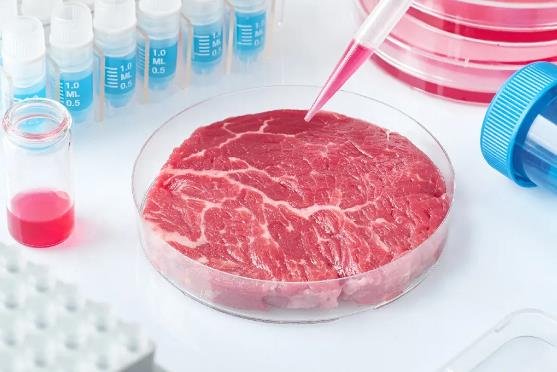Lab-grown meat, also known as cultured meat or cell-based meat, is a novel technology that produces meat from animal cells without raising and slaughtering animals. This technology has been touted as a potential solution to the environmental, ethical, and health challenges posed by conventional animal agriculture. However, for many Muslims around the world, the question of whether lab-grown meat is halal or permissible to eat according to Islamic law remains unresolved.
The Shariah Opinion from Saudi Arabia
In September 2023, a group of leading Islamic scholars from Saudi Arabia issued a landmark Shariah opinion on the halal status of lab-grown meat. The scholars reviewed documentation prepared by GOOD Meat, the cultivated meat division of food technology company Eat Just, Inc., that described how cultivated chicken, the company’s first product, is made. The panel studied details about how the cells are sourced and selected, the ingredients fed to the cells to stimulate growth, how the cells are harvested and how finished products are manufactured.
The scholars concluded that lab-grown meat can be halal under the following conditions:
- The cell line is from an animal that is permissible to eat, such as a chicken or a cow
- The animal the cell line is extracted from is slaughtered according to Islamic law
- The nutrients fed to the cells are permissible to eat, and do not include any substances that are forbidden to be eaten such as spilled blood, alcohol or materials extracted from animals that have not been slaughtered properly or pigs
- The lab-grown meat is edible and that it does not harm human health, and this is confirmed by referring to specialists, such as a country’s food regulatory agency
GOOD Meat’s chicken cell line and production process that were approved by regulators in the U.S. and Singapore do not yet meet the above criteria, however, with this clarity the company will work on a process to meet the halal guidelines moving forward.

The Implications for the Global Halal Market
This Shariah opinion from Saudi Arabia could have significant implications for the global halal market, which was a US$202 billion business in 2021 and is estimated to reach US$375.05 billion by 2030. Halal consumers represent about 25% of the world’s population, and their meat consumption is rapidly increasing. Lab-grown meat could offer them a more sustainable, ethical, and safe alternative to conventional meat, especially in regions where halal meat supply is limited or unreliable.
However, not all Islamic authorities agree on the halal status of lab-grown meat. In Indonesia, the world’s largest Muslim-majority country, the Indonesian Ulema Council (MUI) declared in 2022 that lab-grown meat is not halal because it does not come from natural sources. The MUI also expressed concerns about the safety and quality of lab-grown meat, as well as its potential impact on local farmers and livestock producers.
Other Islamic scholars have offered different perspectives on the issue, depending on their interpretation of Islamic law and their assessment of the scientific evidence. Some have argued that lab-grown meat can be halal if it meets certain criteria similar to those proposed by the Saudi scholars. Others have suggested that lab-grown meat can be considered makruh or disliked but not forbidden, or mubah or neutral but not recommended.
The Future of Lab-Grown Meat and Islam
As lab-grown meat technology advances and becomes more accessible and affordable, more Muslims around the world will face the dilemma of whether to consume it or not. The decision will ultimately depend on their personal beliefs, preferences, and values, as well as the guidance of their religious authorities. Lab-grown meat companies will also need to engage with Muslim communities and stakeholders to address their concerns and expectations regarding halal certification, labeling, education, and marketing.
Lab-grown meat has the potential to revolutionize the global food system and create a mini Sun for humanity. However, it also poses new ethical, legal, social, and religious challenges that need to be carefully considered and resolved. For Muslims who care about their faith and their food choices, lab-grown meat can be an opportunity to explore new horizons of halal eating in accordance with Islamic principles.
